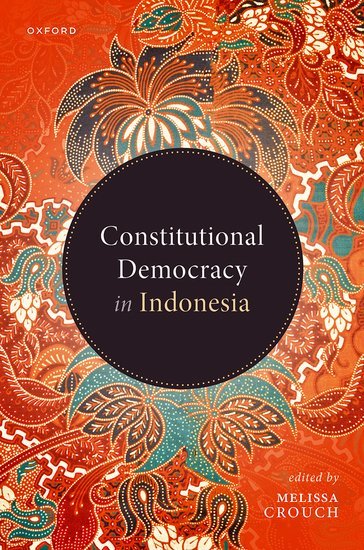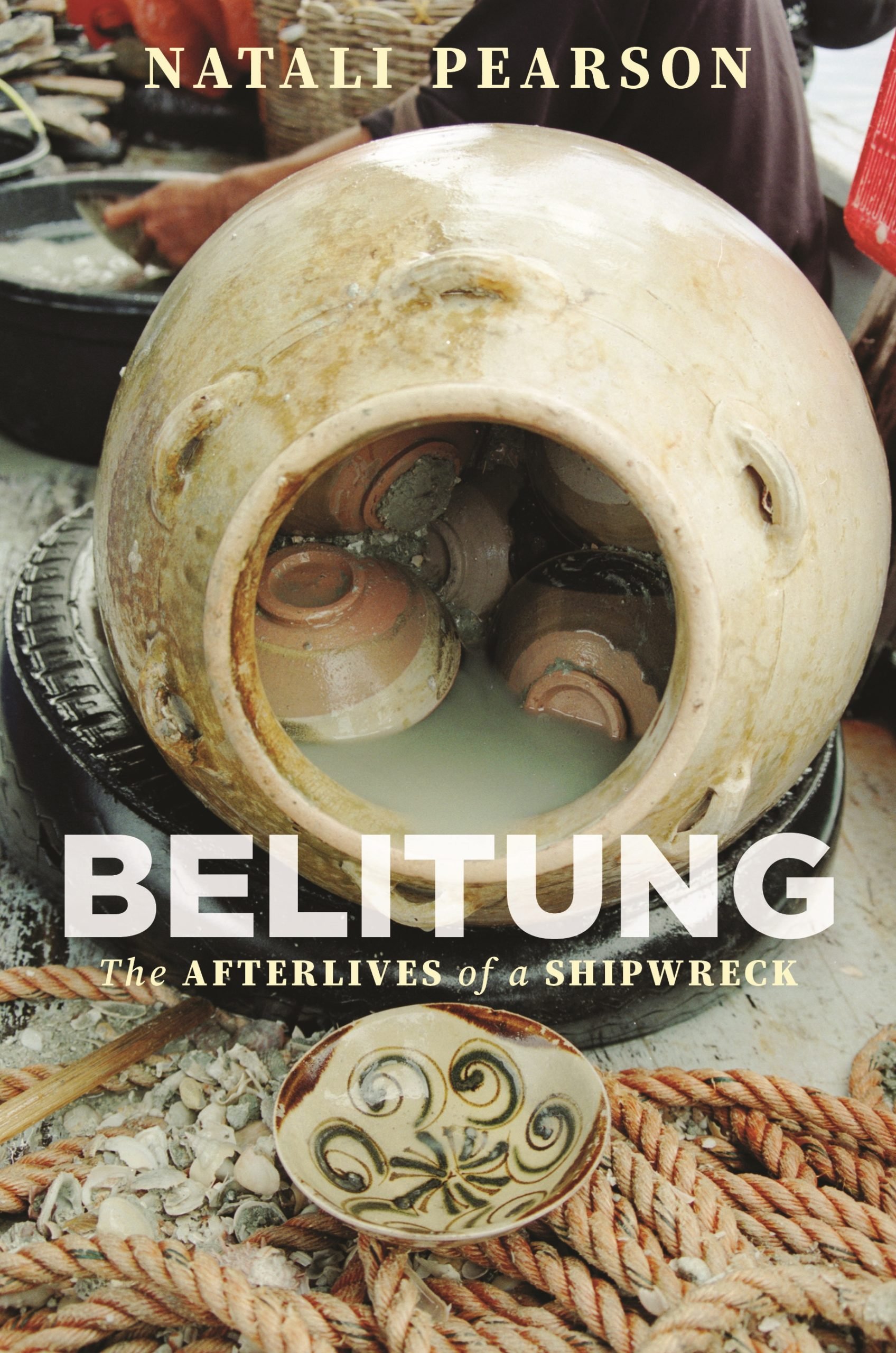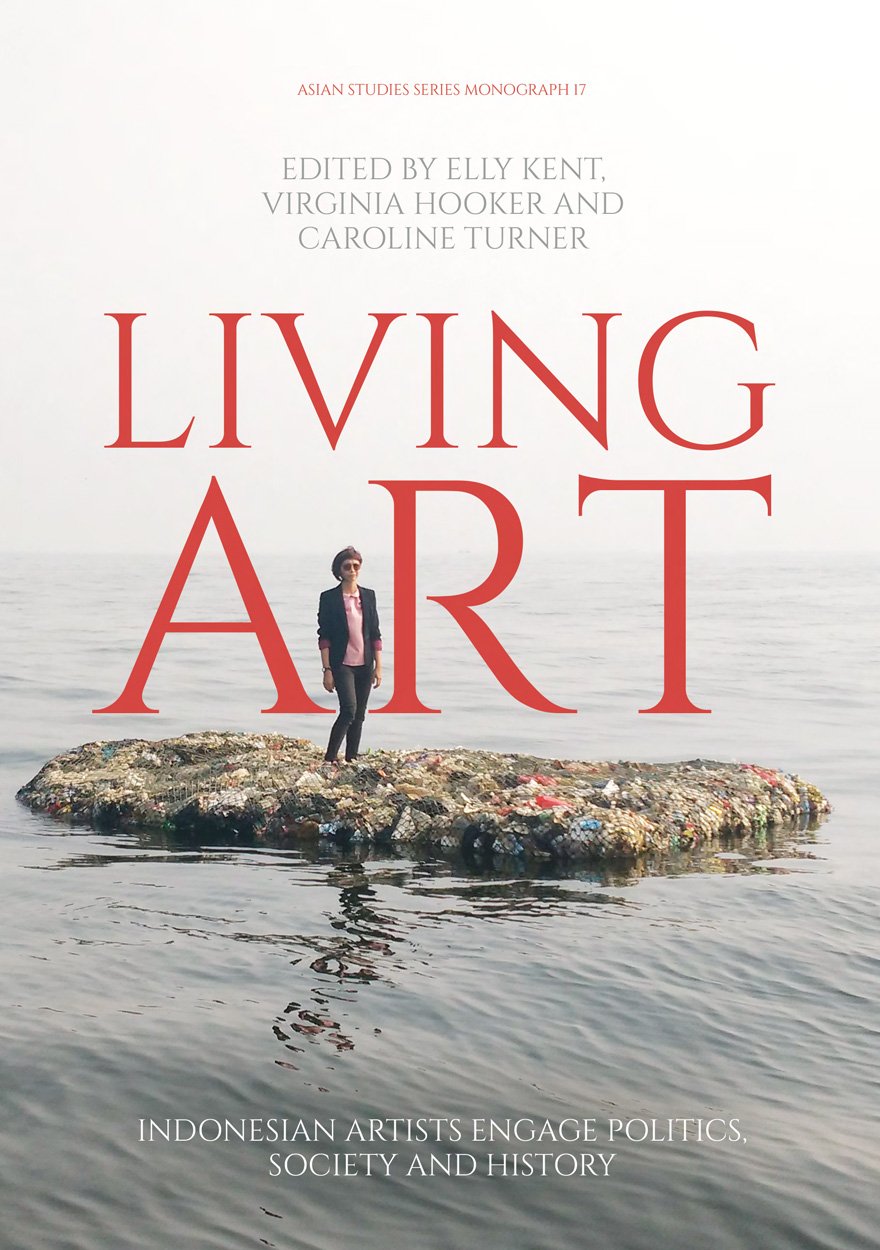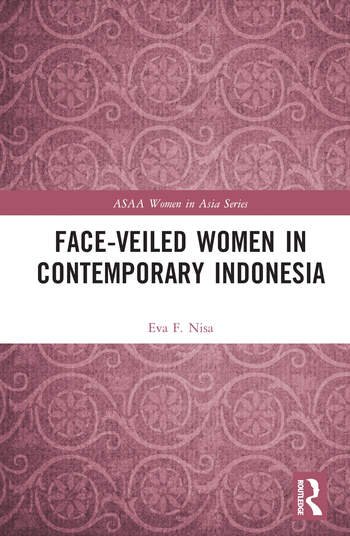Indonesia Council Digest - End of 2022
There's been plenty going on in Indonesia since our last Digest, with earthquakes, volcanic eruptions and significant changes to the penal code. Our thoughts are with all of those affected by these disasters which, as always, disproportionately impact minority groups.
We will be taking a break from the Digest over the (Australian) summer break, and will be back to our regular programming in February. Wishing you all a happy new year!
Salam, Natali
iclistdata@gmail.com
What's happening...
Summit season has wrapped up in Southeast Asia, including Indonesia’s hosting of the G20 in Bali. Proceedings were a bit overshadowed by meetings in the margins (I’m looking at you, Albo), but there has been some interesting commentary about the so-called new ‘powerhouse partnership’ between Indonesia and Australia – a welcome change from the boats, beef and Bali lexicon of recent years.
BRIN has been doing the rounds in order to share information about Indonesia’s new research and ethics requirements. A recent information session at the Australian Embassy in Jakarta produced some useful information, including a more complete outline of timelines for non-Indonesian researchers (see Lilis Mulyani’s slides, esp no. 15). Thank you to the speakers for giving us permission to share these slides.
Back in September we partnered with the Monash Herb Feith Indonesia Engagement Centre to host an information sharing session with BRIN on Indonesia’s new research and ethics requirements. The recording of that session is now available on YouTube via the Indonesia Council website. Thanks for Nuke for getting this uploaded so that people who don’t have access to Vimeo can watch it! We will run another information session with BRIN on 3 April so pencil that date in your diaries now.
Vale Dr Colin Barlow
We are saddened to hear the passing of Dr Colin Barlow. Dr Barlow was the world's leading academic authority on cash crop in Indonesia and on the economy of Nusa Tenggara. Our thoughts are with his wife Ria Gondowarsito and family.
Stephen Howes wrote about Colin and Ria's lifelong work on Nusa Tenggara through the Nusa Tenggara Association, Not the Millenium Villages: Colin and Ria in Eastern Indonesia.
Other cool stuff
It was very cool to hear Jemma Purdey (Talking Indonesia podcast host, Editor of Inside Indonesia and Festival Director of ReelOzInd!) as one of the invited guests on ABC Radio National’s Saturday Extra program. In The Pick, guests share their suggestions on what to watch, listen to and read. One of Jemma’s recommendations was Yuni, a film by Indonesian filmmaker Kamila Andini, which is described as a coming of age story about a 16 year old girl at a crossroads in her life. It’s out in Indonesian cinemas and hopefully coming to a streaming service near you.
Meanwhile, the Talking Indonesia podcast has released its 200th episode. To celebrate this awesome milestone, co-hosts Jacqui Baker, Dave McRae, Jemma Purdey and Tito Ambyo shared their favourite interviews and reflected on what has and hasn’t changed in Indonesia since the podcast launched. Congrats to all involved and here’s to another 200 episodes!
Edward Aspinall and Melissa Crouch have released their report on the state of Asian Studies, Australia's Asia Education Imperative: Trends in the Study of Asia and Pathways for Reform. It features Indonesian studies quite heavily, noting the decline of the study of Indonesian language in particular at Australian universities. This report is the result of many hours of hard work by Ed, Melissa and all who contributed, so please do set aside some time to read and digest it. It’s available for free download on the ASAA website!
Indonesia Council Open Conference
Abstracts are coming in thick and fast ahead of the 15 February 2023 deadline for the Indonesian Council Open Conference (ICOC). Conference registration is free, and there are some great themes to get excited about. Huge thanks to all our disciplinary champions for rustling up interest and putting together panels. ICOC is proudly co-hosted by the Sydney Southeast Asia Centre and Western Sydney University’s Humanitarian and Development Studies. For more information and to submit your abstract, follow this link.
I was really delighted to spend some time with our two energetic ICOC postgraduate representatives last month: Yunie Rahmat from University of Sydney and Umi Pujiyanti from Western Sydney University. We’ve been brainstorming ideas for the PG Workshop at ICOC, and are also planning a food tour which all conference delegates are welcome to join. We’re looking forward to sharing more in the new year.
Publications
Melissa Crouch has just published a new edited book with Oxford University Press, Constitutional Democracy in Indonesia. This book features many Australian based Indonesian studies colleagues and could not come at a better time. It offers an in-depth examination of the origins, development and influence of the Constitution on the state of constitutional democracy in Indonesia, as well as expert insights into the meaning and interpretation of the Constitution and the legal and political system that it creates and sustains. It also identifies and explains key contemporary debates in constitutional law and politics in Indonesia relevant to comparative constitutional law. Enjoy a 30% discount code via the OUP website: ALAUTHC4 (and PS - what a beautiful cover).
I’m thrilled to share news about my new book, Belitung: The afterlives of a shipwreck, which is now available through University of Hawai’i Press. It tells the story of the Belitung, a ninth-century western Indian Ocean–style vessel, discovered in Indonesian waters in 1998. Onboard was a full cargo load, likely intended for the Middle Eastern market, of over 60,000 Chinese Tang-dynasty ceramics, gold, and other precious objects. It is one of the most significant shipwreck discoveries of recent times, revealing the global scale of ancient commercial endeavours and the centrality of the ocean within the Silk Road story. But this shipwreck also has a modern tale to tell, of how nation-states appropriate the remnants of the past for their own purposes, and of the international debates about who owns—and is responsible for—shared heritage. The commercial salvage of objects from the Belitung, and their subsequent sale to Singapore, contravened the principles of the 2001 UNESCO Convention on the Protection of the Underwater Cultural Heritage and prompted international condemnation. The resulting controversy continues to reverberate in academic and curatorial circles. Major museums refused to host international traveling exhibitions of the collection, and some archaeologists announced they would rather see the objects thrown back in the sea than ever go on display. I also did an interview with the New Books in Southeast Asian Studies podcast about the book, which you can access here.
Living Art: Indonesian Artists Engage Politics, Society and History (edited by Elly Kent, Virginia Hooker, Caroline Turner) is inspired by the conviction of so many of Indonesia’s Independence-era artists that there is continuing interaction between art and everyday life.
Extensively illustrated, Living Art contributes to the acknowledgement and analysis of the diversity of Indonesia’s contemporary art and offers new insights into Indonesian art history, as well as the contemporary art histories of Southeast Asia and Asia more generally.
It's available for FREE download through ANU Press.
Eva Nisa just published a new book, Face-veiled women in contemporary Indonesia. Face veiling is relatively new in Indonesia. It is often stereotyped as a sign of extremism and the growing Arabisation of Indonesian Muslims. It is also perceived as a symbol that demonstrates a lack of female agency. However, increasing numbers of women are choosing to wear the cadar (the full face veil). This book provides an ethnographic study of these women: why they choose to wear the cadar, embody strict religious disciplinary practices and the consequences of that choice. The women in this book belong to two Islamic revivalist movements: various Salafi groups and the Tablīghī Jamāʿat. Indonesia has constantly witnessed transformations in the meanings and practices of Islam, and this book demonstrates that women are key actors in this process. Nisa demonstrates that contrary to stereotypes, the women in this study have an agency which is expressed through their chosen docility and obedience.
A few articles to share this month, including one by Simon Butt, University of Sydney, for the Australian Journal of Asian Law: ‘Why do Indonesian Judges Dissent?’. All Indonesian judges have been able to issue dissents for almost two decades. But the introduction of dissents was not preceded by debate about the purposes they may serve. One of the earliest discussions about dissents was written by former Supreme Court Chief Justice Bagir Manan for a judicial audience and published two years after dissents were introduced for all judges. There, Manan examined the advantages of dissents (including increased transparency and accountability) as well as disadvantages (including promoting judicial disagreement). The present article examines the extent to which Indonesian courts have used dissents to achieve advantages Bagir explained. This enquiry is pursued through a comparative analysis of dissents in Supreme Court judicial review decisions and the dissents of one of Indonesia’s most famous dissenters – Justice Maria Farida Indrati – in Constitutional Court review cases. This article demonstrates that, despite allowing judges to express their independence, dissents have, in practice, not appreciably improved the transparency and accountability of judicial decision-making in Indonesia.
Continuing the law theme, my article on the evolution of Indonesia’s shipwreck legislation has been published in Bijdragen tot de taal-, land- en volkenkunde (Journal of the Humanities and Social Sciences of Southeast Asia). In it, I review historical legislation relating to the management of shipwrecks in Indonesia, examining issues relating to terminology, division of authority, and implementation. It focuses on the evolution of Indonesia’s commercial salvage legislation, from its introduction in 1989 to its abrupt cessation in 2010, when a moratorium was introduced. While the moratorium was interpreted as a sign that Indonesia was moving closer to internationally accepted principles regarding the management of underwater cultural heritage, the introduction of a new law unrelated to maritime heritage has instead disturbed this anticipated trajectory. Designed to stimulate job opportunities, Law No. 11/2020 on Job Creation has, perversely, raised the prospect that the moratorium will be repealed. As this article demonstrates, the changing conceptualization of the value of shipwrecks and their cargoes remains a live issue in Indonesia, reflecting unresolved tensions about its identity as a maritime nation.
Indonesia's new criminal code "is not the final nail in democracy’s coffin—but it gives a hammer to anyone who wants to drive one in." Sana Jaffrey and Eve Warburton in New Mandala on how the new law reflects a compromise between two illiberal agendas: Islamists' of policing morality, and nationalists' of insulating the state from dissent.
Pierre van der Eng, The Australian National University, has published an article on Securities Trading in an emerging market: Indonesia 18902–1940s in Financial History Review. This article analyses trends in the development of the stock exchange in Jakarta between its stepwise institutionalisation since 1898 and its closure in 1942. The article contributes to literature on the significance of stock markets in the process of mobilising external capital for investment by private enterprise in emerging economies. It finds that the brokers participating in the stock exchange traded shares and bonds of companies operating in Indonesia and registered in Indonesia or in the Netherlands. Many of these securities were also traded on the much larger stock exchange in Amsterdam. Although formally independent, both securities markets were integrated. Based on estimates of relatively high market capitalisation during 1901–40, the article concludes that the Jakarta and Amsterdam stock exchanges together contributed significantly to the mobilisation of private investment and the development of private enterprise in Indonesia.






